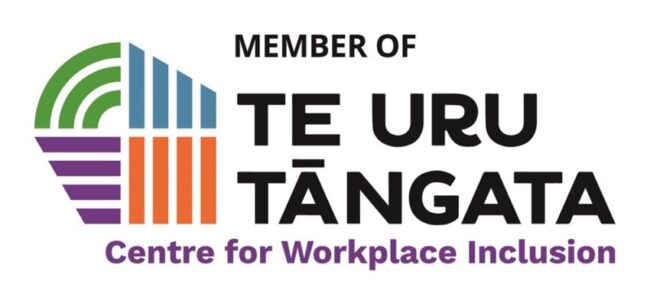Credit Contracts Legislation Amendment Bill
On 11 November 2019, the Finance and Expenditure Committee reported back to the House of Representatives on the Credit Contracts Legislation Amendment Bill (Bill). The Bill has passed its second reading and is now at the committee of whole House stage in Parliament.
Several new changes to the Bill have been recommended, following the Committee’s review, including:
• Treating also as a high-cost consumer credit contract any consumer credit contract with a total interest rate of 50% or more when cumulatively applied to the unpaid balance in the event of a default or where the credit limit has been exceeded.
• Introducing an additional daily interest and fees rate cap of 0.8% for high-cost consumer credit contracts and new restrictions on ‘lender-hopping’ (or refinancing) to get around the restrictions on high-cost consumer credit contracts.
• Relaxing the previous proposed requirement for creditors who advertise in a particular language to also make initial disclosure in that advertising language. Instead, the lender responsibilities will include a new requirement for such lenders to take reasonable steps to provide information that will assist borrowers to make an informed decision, and must do so in any language in which they have advertised.
• Requiring ongoing assessments by lenders into borrowers’ suitability for loans and affordability when making ‘material changes’ (increasing credit limit) to existing consumer credit contracts. A borrower can recover an amount equal to the interest charges, credit fees and default fees where a creditor fails to reasonably assess.
• Requiring the disclosure of contact details for the MoneyTalks service to be provided to borrowers who have been declined by a high-cost lender, made a hardship application or received an overdue payment reminder and requiring lenders to provide statistical information about their business to the Commerce Commission on an annual basis, to improve monitoring and enforcement.
• Introducing regulation making power to provide exclusions for trustees of securitisation or covered bond arrangements from compliance with certain due diligence requirements and instead requiring the relevant contract manager under these arrangements to comply.
For further information on the other proposed changes, please see our earlier articles:
- Banking and Finance: Consumer Credit Law Update
- Government signals further tightening of consumer credit laws
- Banking and Finance: Consumer Credit Law Update and Personal Property Securities Update
If enacted, the key commencement dates under the Bill are set out below:
• The day after Royal Assent (which is expected to be within next few weeks):
o Majority of the provisions (including new enforcement provisions) will come into force.
• 1 June 2020:
o Requirements on high-cost lenders, mobile traders to be treated as creditors under consumer credit contracts and new ‘diligence duties’ on directors and senior managers of mobile traders and creditors under consumer credit contracts will come into force.
• 1 September 2020:
o Applications open for “fit and proper” certifications by relevant directors and senior managers, with all certifications to be mandatory as from 1 April 2021.
• 1 April 2021 (backstop date for all changes):
o Most of the changes to lender responsibilities, including requirements around advertising, keeping of records of affordability and suitability assessments and how fees are calculated will come into force.
If you are affected by any of the above changes and any have queries, please do not hesitate to contact our Banking and Finance team for assistance.
Licensing under the new financial advice regime
The Financial Services Legislation Amendment Act 2019 (FSLAA) introduces new licensing regime for financial advisers that will come into force on 29 June 2020. If your business provides regulated financial advice to retail clients, you will need to become licensed by the Financial Markets Authority. Most of the existing exemptions under the predecessor Financial Advisers Act will be revoked. Please note that “retail clients” does not mean consumers only – it includes most individuals and entities with assets or turnover under $5 million.
The FSLAA removes the three types of advisers that currently exist (Authorised Financial Advisers, Registered Financial Advisers and QFE Advisers). In their place, there will be a single regime for all providers of financial adviser services, who will be subject to the new licensing regime and a code of conduct.
The first step is to obtain a transitional licence, which can be held for up to two years before moving to a full licence (with more details on obtaining full licences yet to be released).
If you provide financial advice to retail clients, please take note of the following key dates:
• 25 November 2019: Transitional licensing applications open.
• 29 June 2020: This is the date the new financial advice regime commences and you must ensure you have your transitional licence before this date.
• 29 June 2022: Financial advice providers must have a full licence.
If you have any questions or concerns we will be happy to provide assistance.
Business Law team
Gerard Dale, Claire Evans, Graeme Crombie, Evelyn Jones, Anna Ryan, Joelle Grace, Peter Orpin, Ellen Sewell, Matt Tolan, Carlo Wan, Kristina Sutherland, Jacob Nutt, Whitney Moore, Alex Stone, Ben Cooper
Also in this edition:
Business Law Newsletter:
- Key protections when buying the assets of an insolvent business
- Zero Carbon Act – a starter for ten
- Climate related financial disclosures – submissions sought
Click here for other Corporate Law articles.




